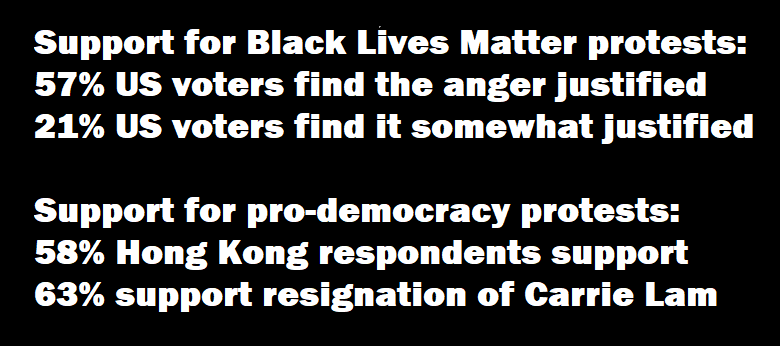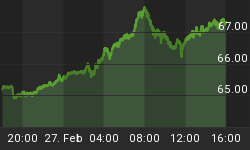President Donald Trump’s announcement that the United States would sanction China for ending Hong Kong’s autonomous status is unlikely to have much impact on the ground, but does reflect the depth of deterioration in the bilateral relationship during the weeks since March 27, when he last spoke with his Chinese counterpart, Xi Jinping.
“Possession is nine-tenths of the law,” as the adage goes, and China undoubtedly possesses Hong Kong. No one challenges that. The United States and other countries, including Britain, may challenge the legality of China’s actions but since there is no way to enforce international law, the most any can hope for is that Beijing will be more circumspect in its actions. Immediately, this means drafting the national security law for Hong Kong narrowly to avoid unduly affecting the vast majority of the city’s residents.
Trump has indicated a lack of personal support of pro-democracy protests in Hong Kong and in 2019 referred to them as “riots.” He earlier referred to the 1989 pro-democracy protests in Beijing as “riots” and called the Chinese leaders “strong” for having put the uprising down.

But the US government, in dealing with China, tends to take the moral high ground and, in the case of Hong Kong, has been supportive of protesters calling for democracy. Now, however, the nationwide protests in the United States, exposing grave underlying racial, social and economic fissures in American society, undermine that posture.
China’s state media is chortling. Global Times, a nationalistic paper published by the official People’s Daily, declared in an editorial, “Quelling protests with troops self-contradictory for US.” The editorial asked, “Why did politicians in Washington overbearingly portray the U.S. as the beacon of democracy and human rights? Have they really not anticipated that the U.S. could one day confront the situation as it does today and that their previous big talk could become a slap on their face?”
During the hour-long phone conversation in March, the leaders of the two countries agreed to work together to handle the coronavirus threat. Subsequently, Trump tweeted: "China has been through much & has developed a strong understanding of the Virus. We are working closely together. Much respect!"
All that respect, evidently, has evaporated. Trump held a press conference May 29 to announce the US response to what he called China’s violation of its treaty commitments vis-à-vis Hong Kong. Roughly the first half of his statement was about China’s unfair trade practices; territorial claims; alleged mishandling of the coronavirus, which by then had resulted in more than 100,000 deaths in America; “illicit espionage” and less-than-transparent practices of Chinese companies listed on US financial markets – a full range of grievances.
As is his practice, Trump did not mention the name of his Chinese counterpart. Clearly, he doesn’t want to push that relationship to the breaking point even though, in mid-May, he told Fox Business Network, “Right now, I don’t want to speak to him.”
Trump went on to say, with even less tact: “we could cut off the whole relationship.” Few people in a position of power would make such a statement without weighing the possible consequences. In this case, Trump sounded as though China was unimportant to him and Xi certainly wouldn’t have liked that.
The editor in chief of Global Times, Hu Xijin, provided one indication of China’s reaction. Technically not an official, Hu said on Twitter: “This president once suggested Covid-19 patients inject disinfectants. Remember this and you won’t be surprised when he said he could cut off the whole relationship with China.”
While Chinese officials may ridicule Trump behind the scenes, they realize that he remains the American president. So they rarely criticize Trump by name, unless it comes to what China considers its core interests.
Hong Kong is a Chinese core interest, and Xi is unlikely to make compromises where “principled positions” are concerned. But Trump is a transactional leader. For him, Hong Kong is not a core interest, nor does it impinge on his principles, which primarily revolve around his reelection prospects.
How far Trump intends to go in terms of sanctioning Hong Kong is unknown, though, in fact, the United States cannot do much. In his statement, Trump talked about revoking “Hong Kong’s preferential treatment as a separate customs and travel territory from the rest of China.” Related: How A Pandemic Made Americans Better Workers
Such a move isn’t much leverage. The United States has consistently enjoyed a trade surplus with Hong Kong – the largest with any trade partner – reaching $31 billion in 2018. Tariffs, from which the city is currently exempt, would be an added cost, but Hong Kong exports little. As for travel, US passport holders can visit Hong Kong visa free, but Hong Kong passport holders need visas to enter the United States.
Hong Kong is also currently exempt from US export controls imposed on China for dual-use high-tech equipment. Hong Kong, by and large, maintains a service economy with not much need for high technology. So if this privilege ended, there may be some impact, but probably not much. Ending the exemption would also stop leakage into the mainland, if any.
Hong Kong’s key feature is its financial services sector, which benefits both China and the United States, and that would likely not be affected. Washington can wreak havoc by seeking to deny China access to the dollar payments system, but such a move might well hurt itself more.
It is within China’s power to bolster Hong Kong’s role as a business hub by ensuring that the forthcoming legislation provides for the free flow of capital and information as well as the rule of law and an independent judiciary.
Within Hong Kong, government and business leaders carefully weigh the prospect of the city losing special status with the United States. Many in the business sector support the national security law, hoping for an end to violence in the streets, which has badly damaged the city’s economy. Pro-establishment politicians have taken the measure in stride, expecting the United States will take into consideration the interests of the 85,000 American nationals and 1,300 American companies situated in Hong Kong. Pro-democracy politicians blame their political opponents for not restraining the Chinese government.
Trump weakens his own position when he plays fast and loose with the facts, repeating falsehoods that have been fact-checked by many. “Why is it that China shut off infected people from Wuhan to all other parts of China?” he asked during his May 29 statement. “It went nowhere else. It didn’t go to Beijing; it went nowhere else. But allowed them to freely travel throughout the world, including Europe and the United States.”
Trump alleges, for at least the third time, that China had allowed international flights out of Wuhan after domestic flights were banned on January 23 when Wuhan was locked down. This is untrue. FactCheck.org on May 5, 2020 published “Trump’s Flawed China Travel Conspiracy” and stated: “Flight records show China did block international commercial flights out of Wuhan after Jan. 23, according to Flightradar24, a global flight tracking service.”
It is reckless for a president to repeat a conspiracy theory as fact, long after it has been debunked and such carelessness demeans the office of the presidency and distracts from other real threats. Just as importantly, it diminishes the credibility of the president and US institutions, pushing China to do the opposite of whatever he wants.
By Frank Ching via Yale Global Online
More Top Reads From Safehaven.com:
















